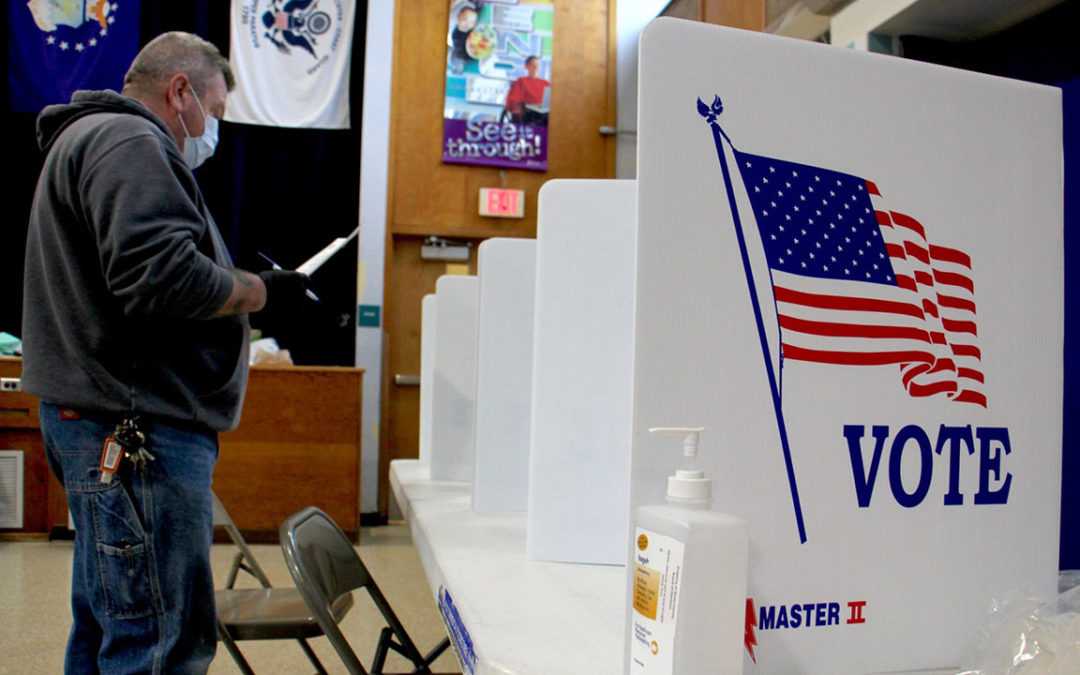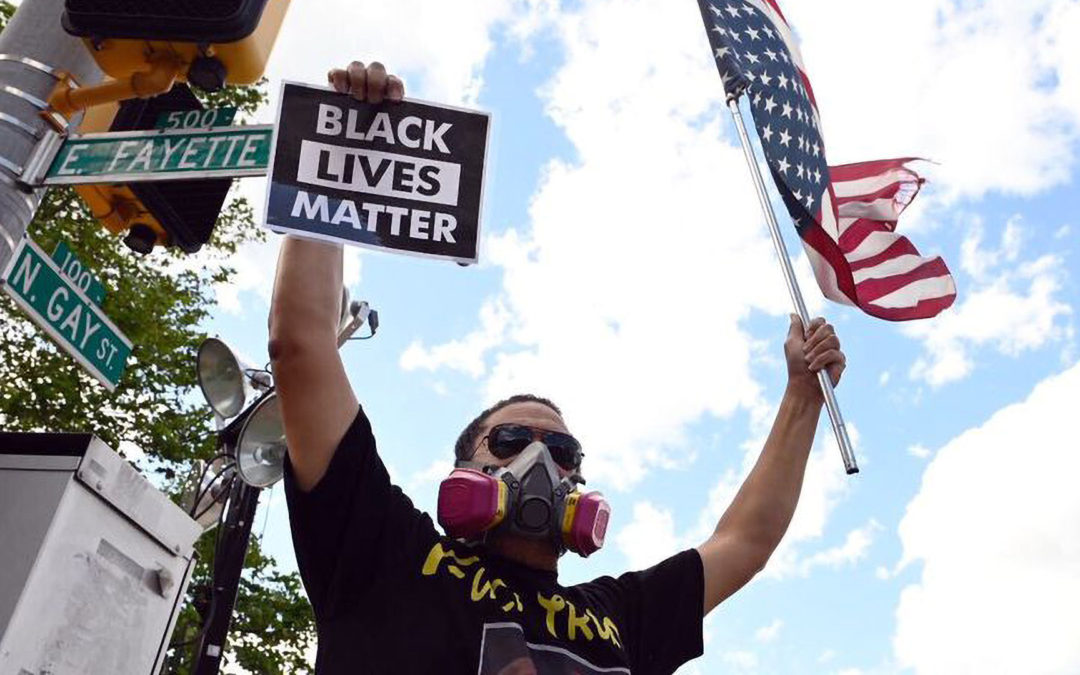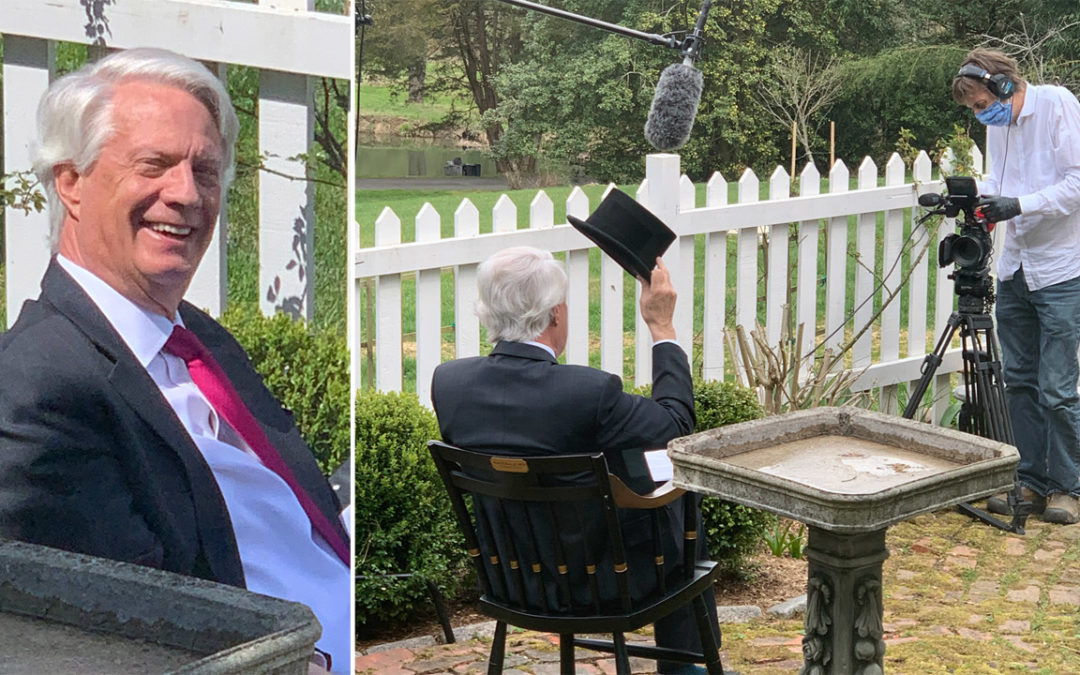
by Robert Bowie, Jr. | Jun 16, 2020 | Featured, Politics
So we are a democracy that put a man on the moon but we can’t make voting machines that work?
Our elections are run differently in every state. Recently, Wisconsin voters waited in long lines, absentee ballots went missing in Maryland, Pennsylvania and Washington, D.C., and more long lines and confusion plagued Georgia and Nevada.
 The political parties could solve this with a simple bipartisan agreement or uniform act, but they seem to thrive on discord.
The political parties could solve this with a simple bipartisan agreement or uniform act, but they seem to thrive on discord.
A few years ago, even our presidential election hung in the balance because of faulty voting and “hanging chads” in Florida.
The founders were pretty much universally in agreement about political parties. Alexander Hamilton called political parties “the most fatal disease” of democratic institutions.
Maybe voting doesn’t matter to the political parties anymore?
Are they more interested in representing themselves?
If you have any doubt, consider gerrymandering.
Gerrymandering does nothing for democracy. It is all about gathering power for one party at the expense of the other. It divides and polarizes us.
What if both parties are like that old joke about lawyers? “If you’ve got one in town she will go broke but if you have two they both get rich.”
The parties are very powerful in our county. They have defined the issues for us, and get funding and perks and benefits for their legislators, such as healthcare and retirement (which is always better than their constituents) and somehow they retire millionaires as “public servants.”
But in exchange for the perks, benefits, and campaign funding, the parties have demanded absolute loyalty to follow their agendas, such as near-unanimous Republican Senate votes on Trump’s impeachment. They have even discouraged open and free public disagreement among their members. Is that good for a democracy?
But it does make sense. Everybody benefits from polarization — except the voters and our democracy.
The polarization is great for advertisers on Fox, MNBC, social media and political fundraising.
Maybe your vote is less important than your political contribution.
Our American genius has always been that we are all very different, but we talk and compromise. That is our genius! Our genius is not factions and polarization.
Madison wrote it is the duty of “well-constructed unions [democratic governments]” to “break apart and control the violence of faction.”
If we really want to call ourselves a democracy, perhaps we should listen to the founders and at least start by protecting our vote.

by Robert Bowie, Jr. | Jun 9, 2020 | Featured, Politics
There have been times when I have pledged to live my words but then have failed miserably with my actions. Occasionally, with the grace of God, sometimes I get a second chance to get it right.
Above all else, the framers of the Constitution feared the power of the king. But they created a democracy that permitted the sovereignty of white people over black.
White supremacy is the cancer cell in our national DNA. White people in America have always been the master race in our white democracy.
Almost every white president since the Civil War has directly or indirectly used racism and a “law & order“ campaign to get elected and looked the other way when violence was used to suppress people of color.
Between 1882 and 1968, whites lynched 3,446 blacks. There is no evidence of the inverse. To the contrary, Black churches that have been bombed have made it an act of Christian faith to invite all races to pray with them in the aftermath.
And I didn’t find any news about black men going to our schoolyards with an AK-47 and killing children either.
So exactly who are we afraid of?
Isn’t it just the same old Civil Rights demonstrations and a President building another “law & order” campaign ? No! Now it is with the backup of military action to suppress those 1st Amendment protests against our historically racist national practices.
No! This is very different! Our nation’s army used to silence our constitutional right to assemble and protest?
Trump and his Attorney General also are preparing to curtail the nonwhite vote in November. There is serious concern that if it is a close vote, and it will be, he will demand endless recounts and not leave office.
If Trump and his followers get another term, Black lives won’t matter and neither will the Constitution.
It is the King’s sovereignty over us all over again. Except this time, we can both liberate ourselves from a king and have a second chance for “liberty and justice for all.”
The question is whether this time white people will stand with all Americans to get it right, or lose our country and our chance again.

by Robert Bowie, Jr. | Jun 2, 2020 | Featured, Politics
The one thing that I absolutely believe is: it is immoral to misquote Yogi Berra even if you don’t know who he was
Yesterday, in response to the rioting arising from the death of another black man by white police officers, a liberal friend of mine shook his head and said: “It’s just like déjà vu all over again.”
That quote is not applicable to these killings and protests, even though it may bring to light, unintentionally, our national nightmare.
In July of 1967, Cambridge Maryland was burned and Maryland’s Republican governor, Spiro Agnew, got national attention for blaming the demonstrators for burning down their homes, neighborhoods and destroying property. I know something about this because I was a young boy visiting the Eastern Shore that summer. The experience frightened me out of my youth so much so that years later I wrote a play about it.
President Nixon liked Agnew’s toughness. He needed a “law and order” guy to polarize support for his 1968 election. He chose him as his VP to whip up the masses against the “liberals” in order to rally the “silent majority”. It worked. Nixon won a plurality of the popular vote by a narrow margin but won by a large margin in the electoral college.
Sounds familiar… but still no déjà vu.
Maybe this will help:
Yesterday Fox News reported, “… crews on the scene in SoHo reported hundreds of people stealing from luxury stores —including Chanel and Dior — for hours on Sunday night going into the early hours of Monday morning. The looters were seen piling shoplifted merchandise into vehicles while others rode off with the merchandise in black garbage bags balanced on Citi Bikes.”
Many of the African-Americans who had organized the protests in Cambridge repeatedly said the whites lit the black neighborhoods on fire in Cambridge and then refused to put them out since they controlled the fire trucks. The white press never reported that. Nonetheless, the disturbance was defined as the destruction of “property.”
So maybe we have it wrong and it is about “property” and not “lives.”
Let’s refocus and see if we have a way to save human life by protecting property.
America became rich when it helped to rebuild Europe’s economy after WWII. It wasn’t a “giveaway!” Out of the rubble, we built a trading partner and Europe and the United States have prospered for almost 80 years.
So why can’t we create a 15-year state-sponsored municipal bond to rebuild Baltimore city? Not a “giveaway,” but designed to lower the tax burden on the state as re-development occurs? A long-term commitment to rebuild the city would instantly increase the property values, both commercial and residential and bring in national and international investors.
What a perfect time for Maryland’s present Republican governor to make Baltimore into a trading partner with the rest of the state. It certainly will be easier than unifying nation states that have been at endless war for the previous thousand years.
All he has to do is sell it to white Americans. The rebuilding could be entirely about eliminating the cost to the state of “giveaways” to Baltimore city.
It’s not a “giveaway” or, even better, about “Black Lives Matter” — it’s about property! Wow what a great selfish idea!
Hey! Let’s make Maryland great again! Baltimore was once one of America’s three most prosperous cities.
… But it won’t happen, because the rebuilding of post-war Europe had no black countries or black cities and that was our foreign policy, not our domestic policy.
The Constitution, at a minimum, sidestepped slavery or at worst supported it with the Electoral College. And after all slaves were “property.” Maybe racism is in the American DNA.
So in this case, Yogi Berra and my friend were wrong. You can’t have “Déjà vu all over again.” The situation is not repeating because it has never ended.
Photo by Kenneth K. Lam, Baltimore Sun

by Robert Bowie, Jr. | May 19, 2020 | Featured, Politics, Travel
I distinctly remember being taught in high school that what made America great was its big heart and a commitment to democracy and freedom throughout the world. The country of opportunity met you with the words of the Statue of Liberty.
However, with America’s commitment to the IMF and the World Bank after COVID-19 still in question at the White House, I have gone back to when I thought we protected free trade as essential to the spread of democracy and freedom for the world.
Imagine if there had been no Marshall Plan and America had not aggressively led the way to rebuild Europe after the Second World War. That allowed us to create trading partners and free trade and made America and Europe free and able to prosper for the last 80 years.
In college, I was taught that free trade is necessary to build civilization. Free trade is like the blood flow through a healthy body.
I may have gotten it wrong, but I think without free trade there would be no America to “Make Great Again.”
Ten years ago, I visited Syria. The Syria that no longer exists. Entire cities have been wiped out since I was there.
Back then, I fell in love with the beauty of a pre-Roman city of Palmyra and its history.
Northeast of Damascus, it survived because it was at an oasis at the crossroads of trade routes in the desert.
Years ago, it was a burgeoning metropolis of peoples and civilizations. There were times when it was a nation-state and times when it was a city within the ever-changing powers of the region. Its independence depended largely on the prosperity opened to it by free trade.
From the beginning, America has been an oasis of natural resources, protected by our two oceans from the dictators or monarchies of the rest of the world.
As a new nation, I was taught, we became an oasis of constitutional freedom with trade between the states, to became a force in the world. Have our oceans and self-confidence become a curse now? We hear only the voice of the growing isolationism, of “America first.”
Over the last three years, it seems we have not been able to admit or see that we are falling behind and doing everything but making America great again.
I am certain I can still remember when America’s foreign policy was about keeping our oasis safe and the world safe for freedom and democracy.
Anyway, I attach these 10-year-old pictures of Palmyra. You can ride a camel there.





by Robert Bowie, Jr. | May 12, 2020 | Featured, HAA, Poetry, Video
If you loved your education or even if you didn’t, but love the people, the culture — and you are pretty certain you should have never been admitted — you are a born Poet Laureate.
If you are worried about qualifications, no license is required. And what is really great is that there are endless jobs available because in most institutions this job has not even been created — so you can fill it by volunteering and hold it endlessly as long as you are keeping the alumni laughing.
And if you are worried about keeping your integrity this is absolutely the job for you! You can test this:
Call a restaurant and tell them you are a Poet Laureate. You will get a table next to the kitchen. You can insist on no favoritism and be certain that your request will be honored.
And it is not “a low paying job”! It is a no paying job, so you pay no taxes! And there are other hidden benefits:
I have found that as long as I have been a Poet Laureate they have not revoked my degree. In my case, that’s important.
I have been the Poet Laureate of the Harvard Alumni Association for the last eight years and I am living proof that no talent is richly rewarded for the pure pleasure of just doing this job.
Yes, I have proof:
The job requires that I present my “ode” at the Annual Spring Meetings of the Alumni Association and, for the last two years, for different reasons, it has been videoed.
Have fun with it. Two weeks ago, because of the coronavirus, I bemoaned the cancellation of our graduation and celebrated our student athletes and our football team:
The year before, I celebrated the Harvard Magazine and my former father-in-law:
For the text of the rest see the HAA website.
In truth, this is not a labor of love. It is more than that. I owe this school more than I can ever pay back. For me, it is my foolish way to say thank you. It is worth doing this for that alone.
If your institution does not have a Poet Laureate, volunteer. You will make a fool of yourself but you will open door for others to be free to do the same.
But if you are a graduate of Harvard, the job is taken.

by Robert Bowie, Jr. | Apr 21, 2020 | Featured, Travel
So, this is how I got tricked into my new unintended optimism:
With the coronavirus, we are confronted with a new “new normal” yet again. I am again surprised at how fast our world can suffer catastrophic change and how quickly we accept it and adapt and —yet again — take no notice that disaster recovery as a way of life may be in our DNA.
Yesterday, quite by accident, when I was deep in quarantine and grumpy, I discovered some old travel photos I had taken ten years ago and my mind played a trick on me.
I was thinking about how years ago, there were no security checks in our airports and how now they are an accepted part of our lives.
I noticed that each picture looked like it could have been taken today, but history makes that impossible.

Look at the picture of the sister bending to be photographed with her little brother and how instantly it was interrupted by two of their playmates who wanted to be part of the fun.
It was taken in Aleppo, a city which was totally destroyed several years ago during the war in Syria.

The second photograph is of a market in Luang Prabang at the edge of the Mekong River in Northern Laos. Since that picture was taken, Chinese civil engineers have changed the flow of the river and thus the life of that little waterfront Buddhist city.
But finally, the picture which is the cause of this my unexpected optimism:

It was taken by total accident in a street market in Chiang Mai, Thailand. I realized the surprise of an unexpected discovery:
“Everybody is looking for something-at the same time.”
All of a sudden, I was surprised by the present that I thought was the past.
The people are so alive despite their futures and their past. We put our best face forward. We are, by nature, resilient. It lives in the acceptance of people in these photographs, whether these people are now alive or dead.
It is who we are.

 The political parties could solve this with a simple bipartisan agreement or uniform act, but they seem to thrive on discord.
The political parties could solve this with a simple bipartisan agreement or uniform act, but they seem to thrive on discord.











